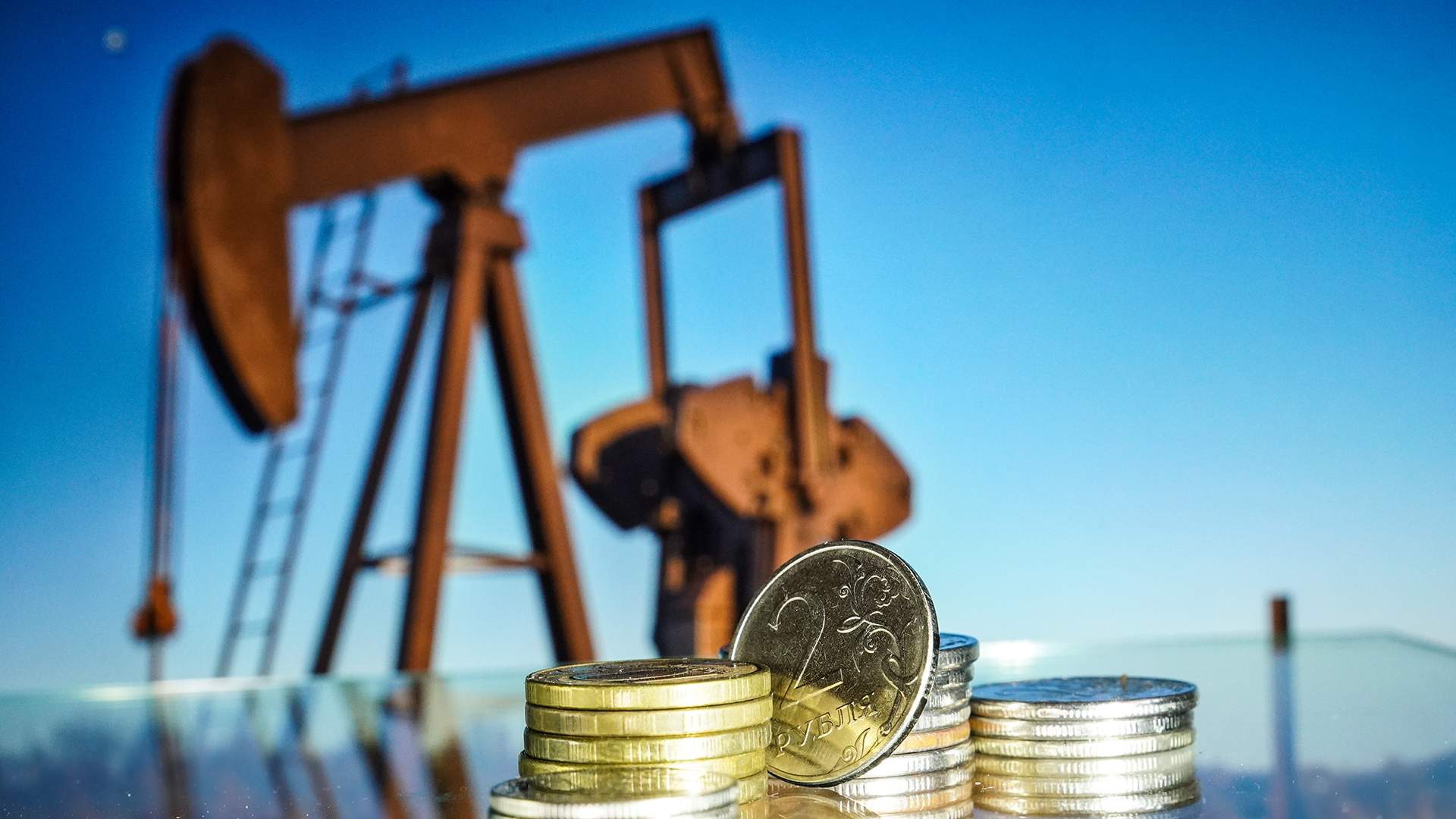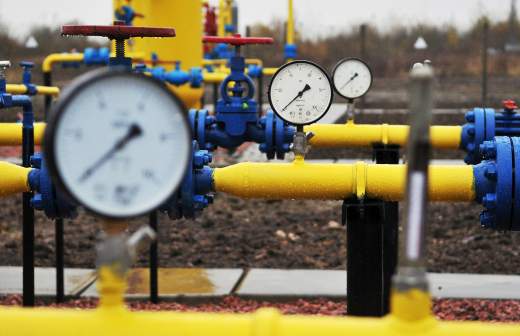A profitable year: how much Russia earned from oil and gas

Oil and gas revenues of the federal budget of the Russian Federation grew by 25.7% to Br10.341 trillion in January-November, reported the Ministry of Finance. In 2025, this figure will have to reach Br11 trillion - about 27% of total revenues. As the ministry told Izvestia, such dynamics indicates the strengthening of long-term sustainability of the budget. Details - in the material "Izvestia".
Moderate decline
The share of volatile federal budget revenues is gradually declining, the Finance Ministry's press service told Izvestia. In 2013, oil and gas revenues amounted to about 50% of the budget, in 2023 - about 30%, and in the context of the budget system of the Russian Federation - about 15%. At the end of 2024, revenues are expected at the level of 11.3 trillion rubles.
"According to the law on the federal budget for 2025-2027, in 2025 oil and gas revenues are planned at the level of 11 trillion rubles - about 27% of total revenues. Such dynamics indicates the strengthening of the long-term sustainability of the budget," the ministry said.
Due to higher GDP growth and inflation, non-oil and gas revenues will be higher than the plan by almost Br0.5 trillion this year, said Ilya Fedorov, chief economist of BKS Investment World.
- At the same time, oil and gas revenues will be somewhat lower than the plan at the end of the year, by about Br0.2 trillion in general, as the budget has adjusted to the new realities for two years," the expert told Izvestia. - The share of non-rental taxes is increasing both due to the fall of the rent itself, and due to the growth of non-rental income due to the growth of the economy and the tax burden on business and households.
The gradual growth of nominal wages, according to him, will lead to an increase in the share of workers who will pay income tax on income of 15% instead of the current 13%. The budget relies more and more on domestic resources of the economy, which makes the issue of GDP growth more urgent.
Deferred effect
Revenues (as opposed to expenditures) at the end of the year do not differ much from the data for 11 months, emphasized Anton Tabakh, chief economist of the rating agency Expert RA. Most likely, the new sanctions announced at the end of November will not have much impact on oil revenues, and the effect of the weakening ruble will be fully manifested in early 2025.
- Therefore, we expect a comparable increase in revenues in both categories, about 25-26%," the expert told Izvestia. - At the same time, the process of reducing dependence is gradual. Most likely, in the coming years, non-oil and gas revenues will grow faster than oil and gas revenues, specifically in 2025 because of the tax adjustment. This, in turn, will reduce the budget's dependence on the oil and gas industry.
The growth of federal budget revenues in 2024 turned out to be significant and exceeded other macroeconomic indicators by its rates, Vladimir Klimanov, Director of the Center for Regional Policy of IPEI of the Presidential Academy, told Izvestia. This is due, among other things, to the continuing impact of the budgetary impulse in the industries of the non-producing sector of the economy.
- At the same time, energy prices remain very high, and even with the decline in total oil and gas exports, oil and gas revenues are growing. The ratio of oil and gas and non-oil and gas revenues is still approximately the same as it was in 2023, i.e. about one third of the federal budget revenues are generated in the oil and gas sector. But it is much lower, for example, than it was in 2022 or in the mid-2010s, when this share exceeded 40% and even reached almost half," he emphasized.
In the medium term, in his opinion, the importance of oil and gas revenues will continue to decline. In the law on the federal budget for 2025, their volume is set as 27% of total revenues.
Replacement of sources
Next year, a reduction in the share of oil and gas revenues in Russia's budget is a realistic prospect thanks to the government's targeted actions, says Artem Savostitsky, PhD in Economics, Deputy Head of the Department of Economic Policy and Economic Measurements at GUU.
- The implementation of tax reforms, such as increasing income tax rates, introducing progressive taxation and increasing excise taxes on tobacco, alcoholic beverages and fuel, create conditions for the growth of non-oil and gas revenues. In addition, support for the manufacturing industry, agriculture and small business, as well as investments in infrastructure and innovations contribute to the development of sectors that can compensate for the decline in oil and gas revenues," the expert explained to Izvestia.
Reducing dependence on oil and gas exports, he said, is becoming a priority, especially in the conditions of sanctions pressure and fluctuations in world prices. The government is actively stimulating the development of domestic production and strengthening alternative sources of income. The projected increase in the share of non-oil and gas revenues to 73% in the 2025 budget is a key step in this strategy.
- This is achieved by improving tax administration, combating the shadow economy and broadening the tax base. Digitalization of the tax system and measures to increase tax collection also play an important role in creating a transparent and sustainable financial system," says Savostitsky.
The strategy for the long-term sustainability of the economy, as laid out in government policy, is aimed at minimizing dependence on commodity markets. This is confirmed by both current measures and the forecasts included in the budget.
The total amount of budget revenues in 2025 is projected at Br40.3 trillion, of which 73% will be non-oil and gas revenues, emphasized the interlocutor.
At the same time, the new budget plan really reflects the government's desire to achieve financial stability and social justice through the process of reducing dependence on oil and gas revenues, the expert said.
- Thus, the reduction in the share of oil and gas revenues is not only an ambitious goal, but also the real result of consistent and thoughtful actions already implemented by the government. Despite the current growth of oil and gas revenues, I am confident that steps to reduce the budget's dependence on this sector in the case of lower oil prices in 2025 will lead to increased economic resilience to fluctuations in commodity markets, - concluded Artem Savostitsky.
The growth of non-oil and gas revenues is explained by the fact that prices for mineral resources, as well as for other export categories, are rising, Alexander Shneiderman, Head of Sales and Client Support Department at Alfa-Forex, told Izvestia.
- Russia in this sense is severely restricted by sanctions. Thus, diamond exports have decreased. Exports of timber have decreased. However, there has been a reorientation. Supplies of categories that were not subject to restrictions are increasing, and their prices are rising. For example, mineral fertilizers, in terms of exports of which Russia has reached the level of 2021, taking a share of the world market of 18%," the expert explained.
One of the most important and developing export categories is food products of the agro-industrial complex, Oleg Kalmanovich, chief analyst of Neomarkets, told Izvestia. There is a reasonable forecast, according to which by 2030 the volume of food exported abroad will increase 1.5 times.
- First of all, these are grains and fish. Grain quotations react very sensitively to the news about climate change, which caused low harvests in the Northern and Southern hemispheres. In this sense, Russia looks the most favorable, as it is one of the few countries actually able to feed itself fully, and the surplus is enough for stable supplies. Our forecast: the share of non-oil and gas revenues will grow, especially from the segment of non-sanctioned goods. The problem of organizing settlements remains acute," Oleg Kalmanovich concluded.
The normal non-oil and gas deficit of the consolidated budget is 5-8% of GDP depending on the situation, Dmitry Kulikov, Director of the Sovereign and Regional Ratings Group at ACRA, told Izvestia.
- Now, in 2024, it is approaching 7% of GDP, and will probably be closer to 6% of GDP in 2025. In this sense, there are no pronounced dynamics of reducing the budget's dependence on oil and gas revenues; nevertheless, the focus of the tax reform is indeed rather non-oil and gas," he added.
Переведено сервисом «Яндекс Переводчик»








